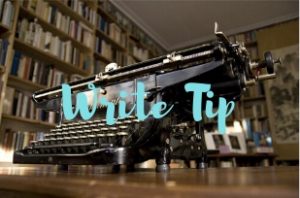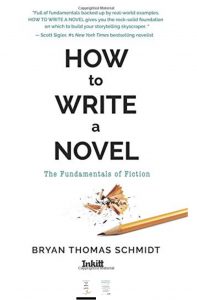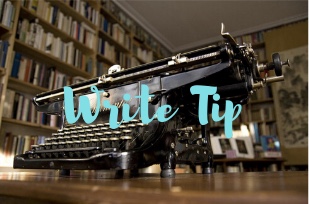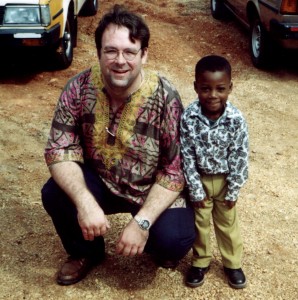 The following is an excerpt from my book How To Write a Novel: The Fundamentals of Fiction Chapter 13: Editing & Rewriting.
The following is an excerpt from my book How To Write a Novel: The Fundamentals of Fiction Chapter 13: Editing & Rewriting.
Today we start a new multi-part series on Self-Editing for writers with a look at how to approach rewriting. I am a firm believer that rewriting is where the magic happens. It’s where you take the rough draft you fought through and hone it into a fine tuned, focused, polished piece. It’s where you get the opportunity to finally see your story all laid out and examine its flaws, strengths, and needs in full and set about the work needed to complete it and take it from good to great. To me, the rewriting, is when the fun begins, because it is here things will come together in a way that begins to match the magic vision you’ve held in your mind for so long and struggled to put into words. So rewriting is an important process, an invaluable opportunity, and I consider it something to look forward to, not something to dread.
Getting To The Rewrite
 Now before you actually start rewriting, it’s important to let your manuscript breathe. How long you should do this depends upon you, your level of experience, the deadline, what else you have on your plate, etc. But generally, I agree with those who suggest it should be a minimum of six weeks—six weeks during which you work on anything but this novel, clearing your mind of what has been an obsession, focusing on something new and different, and putting this out of your thoughts in order to clear you head and regain some manner of the objectivity required to truly revise well. In On Writing, Stephen King writes: “You’re not ready to go back to the old project until you’ve gotten so involved in a new one (or re-involved in your day-to-day life) that you’ve almost forgotten the unreal estate that took up three hours of your every morning or afternoon for a period of three or five or seven months.” You’re too close to the project, too consumed with, too obsessed to ever see it clearly and objectively the way one must in order to evaluate it properly, so the time has come to take a break, shut it in a drawer, and resist the urge to return to it for a period of time while you regain perspective.
Now before you actually start rewriting, it’s important to let your manuscript breathe. How long you should do this depends upon you, your level of experience, the deadline, what else you have on your plate, etc. But generally, I agree with those who suggest it should be a minimum of six weeks—six weeks during which you work on anything but this novel, clearing your mind of what has been an obsession, focusing on something new and different, and putting this out of your thoughts in order to clear you head and regain some manner of the objectivity required to truly revise well. In On Writing, Stephen King writes: “You’re not ready to go back to the old project until you’ve gotten so involved in a new one (or re-involved in your day-to-day life) that you’ve almost forgotten the unreal estate that took up three hours of your every morning or afternoon for a period of three or five or seven months.” You’re too close to the project, too consumed with, too obsessed to ever see it clearly and objectively the way one must in order to evaluate it properly, so the time has come to take a break, shut it in a drawer, and resist the urge to return to it for a period of time while you regain perspective.
For me, I usually spend the time on short stories or planning and researching my next book. Sometimes I have some polishes to attend to or an anthology to edit. Other times I have blog posts and marketing and other details I’ve postponed and ignored for months to catch up on. Whatever it is, the key is to do something else and only something else for a time so you can free your mind to breathe and let go of the obsession. You also need to get the distance to emotionally let go enough that you can accept the need to revise and make the book better. Stop coddling your baby enough to see that there are things to be learned and taught and refined about her, and that’s okay, it’s all part of life and growth, and prepare yourself mentally to undertake the task with the enthusiasm that it is not a failure but a natural step toward success.
Once you learn to do this, you will find entering the rewrite process to be quite rewarding. You will approach it with renewed focus and energy and the sense of purpose necessary to do it well. King writes: “If you’ve never done it before, you’ll find reading your book after a six-week layoff to be a strange, often exhilarating experience. It’s yours, you’ll recognize it as yours, even be able to remember what tune was on the stereo when you wrote certain lines, and yet it will also be like reading the work of someone else…This is the way it should be, the reason you waited.”
The first step, in fact, before the rewrite actually begins, should be sitting down with the whole manuscript and reading it line by line, pen in hand, making whatever notes occur to you as you go, but not stopping until you’ve been through it in its entirety, beginning to end. For me, I do this on paper. It’s a great way to rest my eyes, which spend way too many hours of each day staring at computer screens or TVs, and it also is a wholly different experience from reading on a machine. For one thing, the whole page unfolds before you, not just a portion, and you can see it as a whole in a fresh way that allows your eyes to take it in differently than they do when you read on a screen. For another, since you’ll undoubtedly spend hours working it over on screens as you rewrite, it gives you a chance to take it to the park, porch, etc. and just work with and read it as readers do, without the demands of the work environment encroaching. This can be important because you are seeking perspective and a fresh look, after all. However you approach it, the trick is to evaluate the whole book before you stop and do any rewrites, because often themes, tone, arcs, etc. need to be considered in their whole before you can see their weaknesses and begin to address them. Chopping it up will disconnect you from how it all flows and falls together—works or doesn’t—and prevent you from seeing the full perspective needed to improve.
Once you’ve made your notes, then is the time to go back to any other notes you might have made as you wrote later chapters or when your mind just had to make a note during the six week hiatus you were supposed to be ignoring it, consider them in light of the fresh reread, and devise an approach to begin your rewrite. Sometimes, there will be particular areas you need to address separately: character development, particular aspects of craft, particular plots or subplots, theme, etc. and other times you will want to start at the beginning and work your way through right off the bat. Whatever the correct approach is for you to determine, but having a plan is wise, because this is the time for determined, focused effort, not the seat of your pants writing you may have done to finish your first draft. Rewriting is work. Important work. And you have to approach it as such, often inherently different from the initial drafting process.
The human mind works in funny ways. For example, when we read, our eyes skips the bulk of words, just taking in key words and phrases that allow our minds to assemble the most logical sentence. This allows us to move much more quickly over a page than if we stopped at every word. When you read aloud, however, it forces you to slow down and look at every word. This is why when rereading your work you can skip over missing words, missing conjunctions, typos, homonyms (words that sound alike but have different meanings and spellings), and more. Because we wrote the piece, we already love the characters and subconsciously know so much about them that we assume things that may not come across clearly in the text for others and fill in gaps that aren’t on the page mentally, so everything appears okay. This is why we need other eyes to help edit and proof our books. And it’s why we need to carefully approach revision with a mind toward objectivity.
The other part of preparing to rewrite is mental. And Kat Reed, in Revision, suggests a mental checklist that is useful to prepare your mind and attitude for the revision process:
- Your first thoughts are not necessarily your best thoughts.
Just today I picked up a project I had struggled with for months and came up with a great new idea that totally helped fix a scene and move it forward, something I had never thought of before. If I had not put it aside, who knows when or if it might have occurred to me. Distance was the perfect aid.
- Nothing you write is carved in stone.
Yes, we all love our work. We all are proud of our babies. But face it. No one is perfect. Robert Silverberg told me “The difference between an old pro like me and a new writer is that I still write crap but I know how to identify it.” That is so true. Even then, old pros need editors too because we can always make it better.
- It takes revision to turn a loss into a win.
Rejection sucks. So does some criticism. The best way around both is to ensure the book you send out is the best it can be. Period. No other solution.
- Shortstop Criticism—Be your own toughest critic.
Scared of criticism? Dread the bad review? Well, shortstop it by getting there first and giving them as little to criticize as possible. Fix it in revision. Close the gaps, fix the holes, etc. That is your best defense.
- If it’s worth doing at all, it’s worth doing right.
There’s really nothing more to say by way of explanation, except if you don’t believe this then you are being a special type of fool.
- Extra effort closes the distance between you and your audience.
The extra time of revision is your shot to see what readers see and make sure you are communicating as clearly as possible what you intended. It is the chance to make sure what they receive and what you send out most closely match what you hope for in your mental vision of any book.
- Revision means survival.
Pretty much without revision, few succeed, and without revision few go far. It is a necessary part of the process, and as I said, I look at it as a positive: where the magic happens. It can truly make a good book great. It is not something to dread but to embrace.
For more on self-editing, come back next Wednesday. For more WriteTips, click here.
 Bryan Thomas Schmidt is a national bestselling author/editor and Hugo-nominee who’s edited over a dozen anthologies and hundreds of novels, including the international phenomenon The Martian by Andy Weir and books by Alan Dean Foster, Frank Herbert, Mike Resnick, Angie Fox, and Tracy Hickman as well as official entries in The X-Files, Predator, Joe Ledger, Monster Hunter International, and Decipher’s Wars. His debut novel, The Worker Prince, earned honorable mention on Barnes and Noble’s Year’s Best Science Fiction. His adult and children’s fiction and nonfiction books have been published by publishers such as St. Martins Press, Baen Books, Titan Books, IDW, and more. Find him online at his website bryanthomasschmidt.net or Twitter and Facebook as BryanThomasS.
Bryan Thomas Schmidt is a national bestselling author/editor and Hugo-nominee who’s edited over a dozen anthologies and hundreds of novels, including the international phenomenon The Martian by Andy Weir and books by Alan Dean Foster, Frank Herbert, Mike Resnick, Angie Fox, and Tracy Hickman as well as official entries in The X-Files, Predator, Joe Ledger, Monster Hunter International, and Decipher’s Wars. His debut novel, The Worker Prince, earned honorable mention on Barnes and Noble’s Year’s Best Science Fiction. His adult and children’s fiction and nonfiction books have been published by publishers such as St. Martins Press, Baen Books, Titan Books, IDW, and more. Find him online at his website bryanthomasschmidt.net or Twitter and Facebook as BryanThomasS.
To download How To Write A Novel: The Fundamentals of Fiction free one book, click here.
To check out Bryan’s latest novels, click here.



